Liz Truss the latest victim of a never-ending Tory death cult
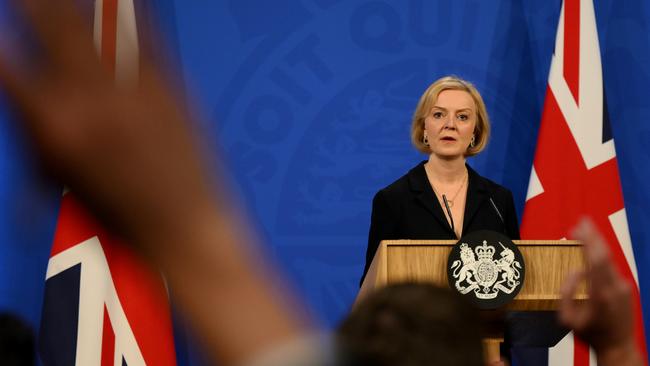
In his suite in the Hyatt Regency hotel at the Conservative Party conference in Birmingham, he told allies: “The idea that a prime minister is going to bullet her chancellor and survive, I just don’t think is feasible.”
Unknown to Kwarteng, his long-term friend had already been sounding out at least one former cabinet minister about the prospect of replacing him.
Intermediaries had begun reaching out to allies of Sajid Javid, the former chancellor, to gauge his appetite for a return to the Treasury in case Kwarteng was forced to fall on his sword. The prime minister’s emissaries asked Javid to name his price but had not bargained on his conditions being too much for Truss to accept.
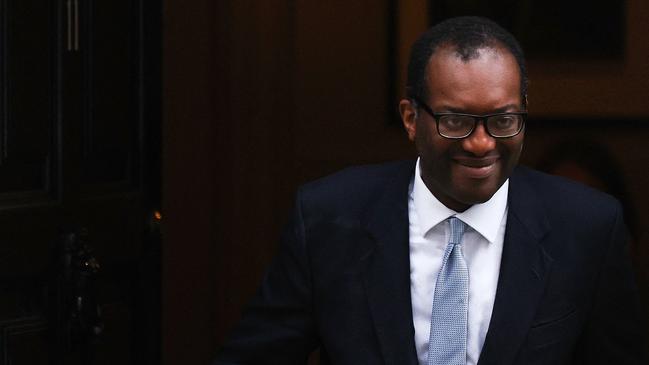
“Sajid would have only done it if he had complete control,” one ally of Javid’s said.
Three sources familiar with the discussions said Javid had insisted on full autonomy over tax-and-spend policies, the freedom to appoint his own political team and, most controversially, the reinstatement of Sir Tom Scholar, the veteran Treasury permanent secretary who was unceremoniously sacked by Kwarteng and Truss on their first day in office.
It is unclear whether more horse trading took place but by Thursday last week, Javid was no longer in the running, with Truss’s allies instead pivoting to another big beast as their preferred replacement for the chancellor.
Just hours after Kwarteng left the UK for Washington to defend the prime minister’s fiscal plans to his foreign counterparts at the annual meetings of the International Monetary Fund, senior Truss allies had made contact with Jeremy Hunt, the former foreign and health secretary, who only a month beforehand had backed her rival, Rishi Sunak, for the top job.
Hunt revealed on Saturday that when he heard that a “Liz Truss” wanted to talk to him on Friday, he assumed it was a prank call. The twice-failed leadership candidate then cut short a family holiday in Belgium to take charge of the Treasury. By Saturday night – after Hunt’s extensive media round, during which he tore up much of the mini-budget – it felt to many Westminster observers that Hunt, not Truss, was now running Britain. Wiser heads note that the Conservatives appear increasingly to resemble a political death cult, having burnt through four prime ministers in six years and four chancellors in the space of a barely believable four months.
Many believe the current chaos was grimly inevitable after a brutal summer leadership campaign that failed to unite either the parliamentary party or the Tory grassroots. Truss arrived at No 10 without a ringing endorsement and faced a faction-driven Westminster.
On Saturday night, a No 10 source denied that Javid had ever been considered for the role now filled by Hunt. “The prime minister laughed out loud at the suggestion,” they said. “She has sat in the cabinet with Javid for ten years and she knows who is good and who is shit.”
By Thursday afternoon, Kwarteng knew that his political future might be in jeopardy, despite being 3,700 miles away across the Atlantic. He spent most of his time at the IMF gathering skipping meetings to hold talks with No 10 and his aides in London.
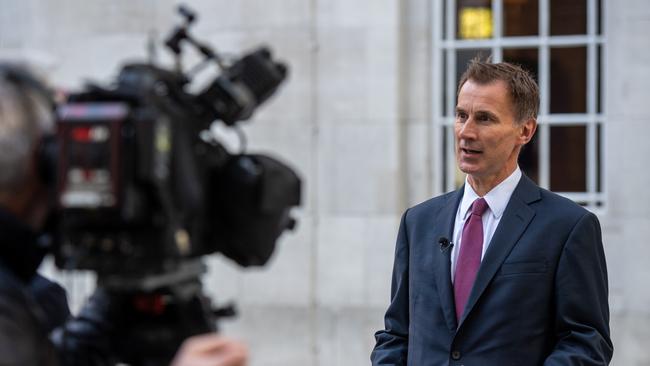
Kwarteng eventually cut short his trip by two days and booked the last overnight flight back to London. By then, however, at least one of his closest allies had already guessed that the game was up. “It wasn’t a massive shock,” they said. “There was nothing to come back for, no major meeting or announcement. The only reason he was coming back was to be sacked.”
If Kwarteng suspected on Thursday evening, as he addressed a room of 200 bankers in Washington at the Institute of International Finance, that the axe was about to fall on his cabinet career, he gave no indication.
He told them there were three important things to sort out: the energy package, growth, and keeping the Bank of England independent. The last one got applause from one person at the back, to which Kwarteng joked: “That must be Andrew”, a reference to the governor of the Bank, Andrew Bailey.
Confirmation that Kwarteng was receiving his marching orders came the next morning. When he arrived at Downing Street after his red-eye flight, he was informed by Truss that she needed to restart her premiership with a “clean slate” – something that would be impossible with him as chancellor. The two had “a warm meeting” in the Cabinet Room.
“The PM felt deep personal sadness at the decision but made peace with it,” an aide said. “Senior party figures had encouraged her to move the chancellor on.” While Truss’s allies are expected to pin the U-turns on income tax and corporation tax on Kwarteng, a government source privy to the discussions pointed out that the pair had together gone through the mini-budget – including abolishing the 45p rate of tax for those earning more than £150,000 – line by line only days before it was delivered.
“They went up to her flat together. They agreed it all, the 45p, and they came out and said, ‘This is what we are doing’, simple as that. It was all her.”
Another source added: “The fact that she has now subcontracted out her entire economic policy to somebody else shows you the depths of her principles.”
Similarly, Truss’s decision to demote Kwarteng’s No 2, Chris Philp, who had already been blamed for the policy to abolish the additional rate of income tax, has left some moderate MPs incandescent.
“The most disgusting thing she has done is sack Chris Philp,” one said. “He’s got his faults, he makes mistakes, but he’s a good person and the person she needs around her and they just f***ed him around completely. They used him, sucked the blood dry and then spat him out. They are a real bunch of bastards.”
According to a source in Kwarteng’s constituency of Spelthorne, Surrey, the former chancellor experienced his first taste of the public’s dissatisfaction during a walkabout on his local high street shortly after the mini-budget on September 23. Although his pledge to cut stamp duty had been expected to provide a welcome boost to the housing market, Kwarteng was left in no doubt about the views of a local estate agent who, on being waved at through the shop window, responded with a rude hand gesture.
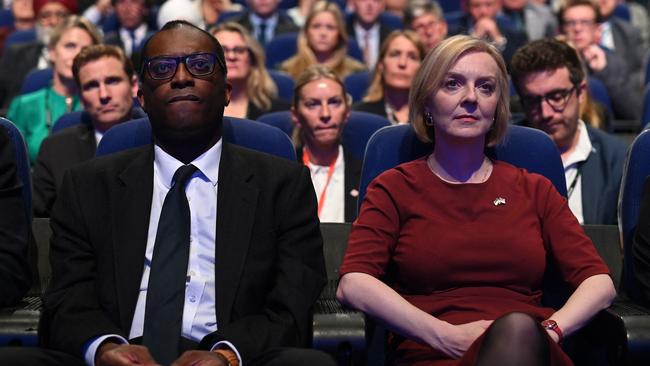
There were signs the wheels were falling off the Truss bandwagon on Tuesday, when she reiterated her commitment to cutting taxes in a speech at a Conservative fundraising dinner for which guests paid £1,500 a seat. Truss, whose speech was described as “a worse version of the one she gave at conference”, was denied a standing ovation.
“It was embarrassing,” one guest said. “I can’t think of another PM who hasn’t received a standing ovation after addressing the same event – not even Theresa May at the height of her Brexit battles. The only topic of conversation was how the party could get rid of her.”
Tory donors are also understood to have snubbed the PM. “Aides came to our table and asked our host, a prominent Tory donor, if he wanted to speak to the PM, as is customary. He told them bluntly that he would rather not.”
Several miles away, at a separate dinner organised by Mel Stride, a leading Sunak supporter, those present were unanimous in their view that Truss should be replaced.
“The major discussions are no longer about her removal but how to do it,” said one of those present. “It was mainstream, moderate MPs. I’ve never been to a dinner like it in my life. The whole room was discussing how to remove the prime minister.”
On Wednesday, Truss faced the wrath of MPs at the 1922 Committee. The No 10 team have privately pointed the finger of blame at the whips for not preparing a proper operation beforehand. Truss was described as “incandescent” that she addressed the backbenchers without Sir Graham Brady, the committee chairman, leading the meeting. “She was stitched up,” an ally said. “It was the same public schoolboy men attacking her at the 1922 who then went out to tweet about how good her tax cuts were.”
Truss appears to have anticipated that calls for her removal would only grow after Kwarteng’s sacking. Within minutes of the prime minister’s disastrous eight-minute press conference on Friday afternoon, Therese Coffey, the deputy prime minister and health secretary, held a phone call with dozens of ministers in an attempt to shore up Truss’s support. Looking “very upset”, according to one person on the call, Coffey acknowledged the government had gone “too far and too fast” in the mini-budget but insisted, despite the severe setbacks, that No 10 was determined to prove the “flipping” Office for Budget Responsibility wrong.
The Institute for Fiscal Studies had claimed that the mini-budget’s tax cuts would create a £60 billion black hole in public finances by 2026. Coffey said that the government would offset this by pressing ahead with major supply-side reforms. She also acknowledged that spending cuts would be necessary, a point Truss had also appeared to allude to during the press conference.
At one point Coffey made a reference to a “ferret in the trousers” and the fact that once “the ferret is out’‘, the disruption and market volatility would end. It was unclear to those listening in whether the ferret she referred to was the mini-budget or Kwarteng.
Later, Coffey held a second call with backbench MPs, but it did not take long for the mood to sour. Laurence Robertson, a loyalist, told Coffey that Truss’s supporters had been made to “look like fools”, while Johnny Mercer, Andrew Percy and Steve Double are said to have claimed that the party was hurtling towards “disaster.”
This weekend as MPs turn their attention to what comes next, the mood among many is sulphurous. There are reports that as many as 100 letters expressing no confidence in Truss have been submitted to the 1922 Committee, which some backbenchers believe would give Brady a mandate to change the rules and get rid of the year’s grace a new prime minister usually has before a leadership challenge can be launched. MPs who know Brady well believe that if the mood continues to sour, he would feel compelled to tell Truss to stand down or face defeat in a vote. If he fails to act then Labour is flirting with tabling its own confidence vote in parliament.
“I’ve never been more depressed by what has happened in my entire time as an MP,” one former minister said. “She sacked Kwasi out of survival but it actually made it worse for her. I think she will be gone by the end of the week.”
A second said: “The odds are heavily against her, she’s now in a cage. A lot of my colleagues will be facing oblivion and they will conclude it is now better to throw the dice again.”
A minister who campaigned for Truss to become prime minister added: “Now it’s just embarrassing. I feel like I’m completely tarnished by it. It’s hard to wake up every day feeling so demotivated.”
Although many of the party are unified in their desire to remove Truss, there is no agreement on who could replace her. Boris Johnson is understood to be setting up an office in New York and “wants to earn some money,” according to allies. He pocketed £135,524 last week for a 30-minute speech at the Insurance Leadership Forum in Colorado Springs. While the calls for Truss to quit are mounting by the day, some in the party believe she must cling on long enough to enable a unifying successor to emerge to replace her.
To this end, a former cabinet minister claimed last night (Saturday) that a group of veteran One Nation Tory MPs, dubbed the “greybeard alliance”, had begun lobbying on Truss’s behalf in an attempt to keep her in post until Christmas. While on the surface they appear supportive, the source added: “It is a pensioners’ plot, with Jeremy eventually stepping up to become prime minister.
“The idea is that Jeremy has a few months as chancellor and then that group moves into cabinet as part of a support package offer.”
Hunt does not enjoy widespread support in the party, with Tory MPs – both Truss loyalists and critics – this weekend deriding his appointment. “She is so badly advised she will have thought, ‘OK, we need a left-wing person, let’s send for Hunt’, but Hunt has so little following,” one senior moderate MP said. Sir John Redwood, a former minister, has criticised Hunt’s decision to continue with the rise in corporation tax, saying: “You cannot tax your way to higher growth.”
Truss’s supporters are equally withering. One said: “This is the guy who only got 18 nominations and was going to make Esther McVey deputy prime minister.” Other MPs are wondering how they will sell an even more toxic combination of tax raises and spending cuts to an increasingly bewildered electorate.
Last week, senior backers of Sunak – with or without his permission – began canvassing on his behalf. At least one senior member of the cabinet has been contacted by two of Sunak’s inner circle, who they said had not been in touch for years.
Senior ministers believe the party is now so fragmented that Sunak would struggle to restore order. “Rishi isn’t a unifier,” a cabinet minister said. “The Johnson lot and the Liz gang would be equally difficult to manage.”
The question for MPs is whether in handing Truss the revolver, they risk turning the gun on themselves.
As one Tory strategist put it: “The parliamentary party has a choice: do they bullet Truss or accept a 1997-style landslide defeat? There is an outside chance that with a new No 10, they can challenge [Sir Keir] Starmer. I think for MPs, whatever decision they take, they may end up having regrets.”
As her predecessors in No 10 know only too well, the outcome for Truss is likely to be bloody.
The Sunday Times

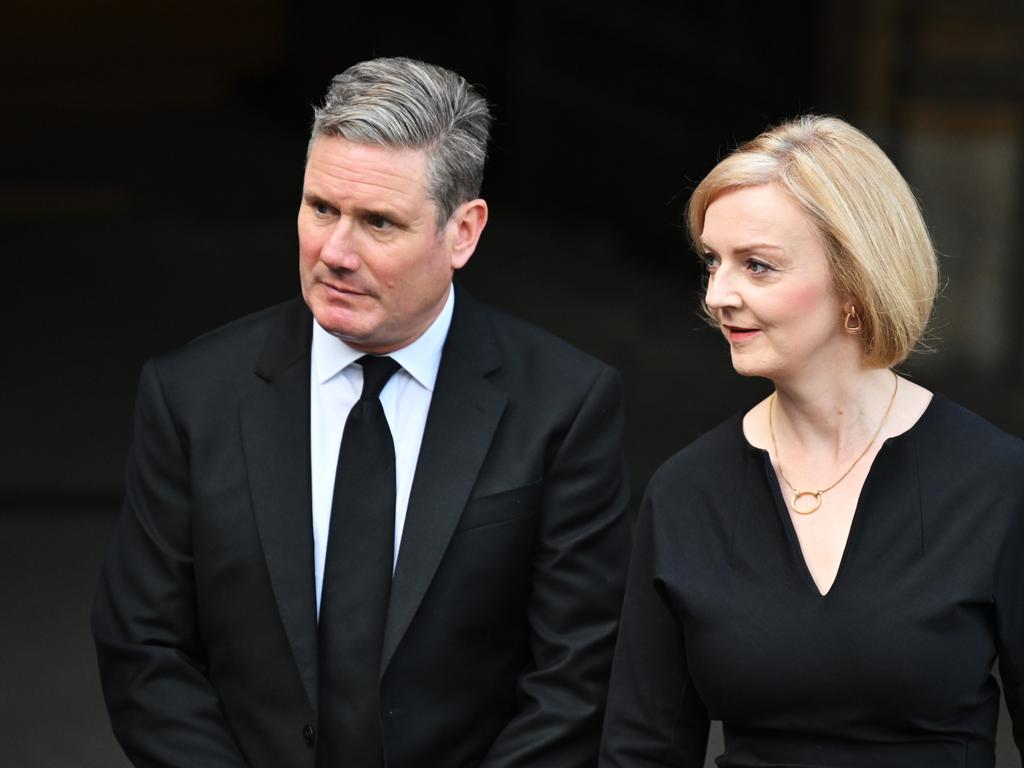
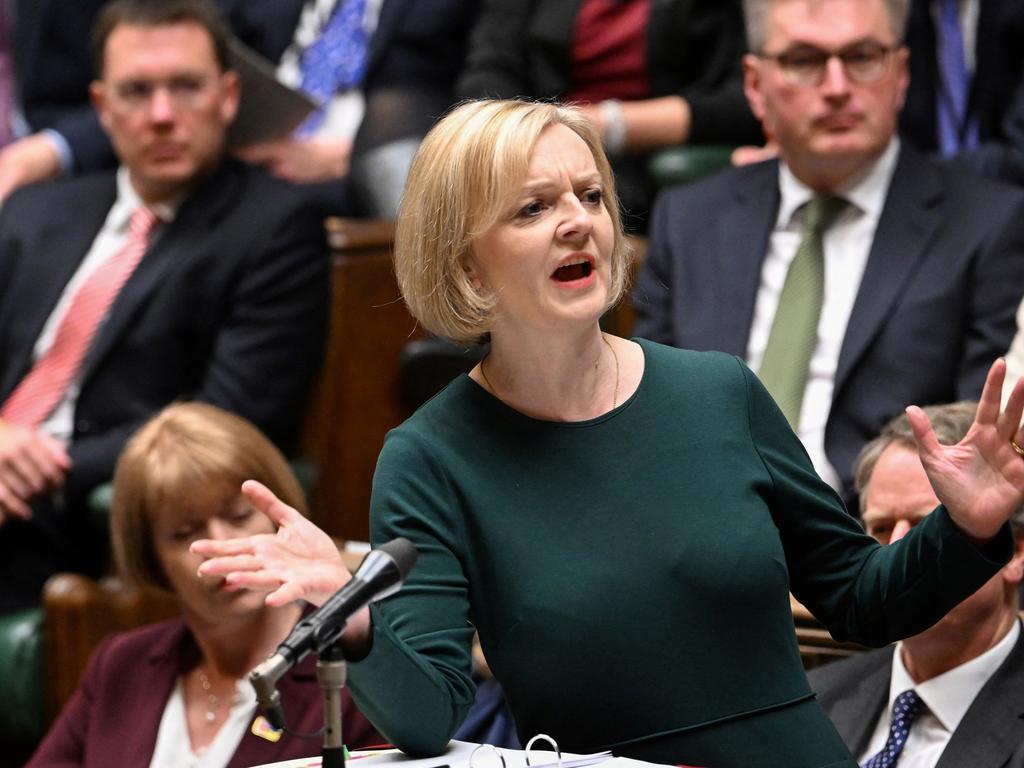


When Kwasi Kwarteng was made the new UK prime minister’s chancellor, he believed he had entered into a pact of mutually assured destruction with her. Even two weeks ago, after Liz Truss committed her first major U-turn on the chancellor’s mini-budget by reinstating the top rate of income tax, Kwarteng was still confident that their political destinies were inextricably intertwined.